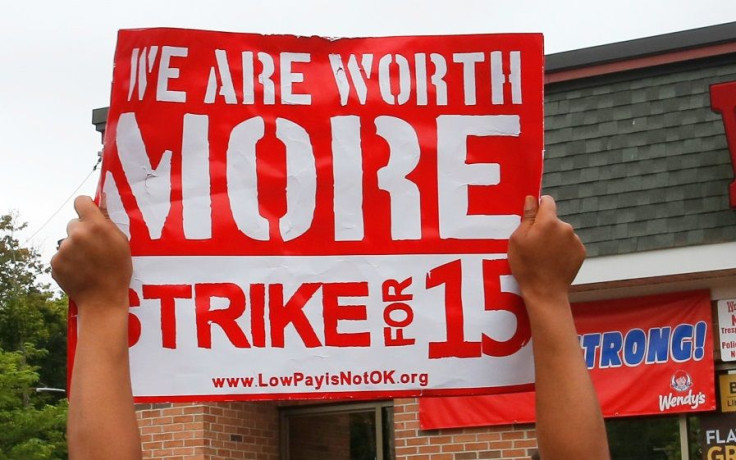Minimum Wage Hikes In NJ And SeaTac: Vote For $15/Hour Pay Could Spark National Dialogue

Republican Gov. Chris Christie on Tuesday was re-elected in New Jersey, where voters sent a clear message that they largely approve of his performance and that they want him back for four more years.
But voters in the Garden State also sent another clear message: They want a higher minimum wage, something their newly re-elected governor didn’t want. In January of this year, Gov. Christie vetoed a bill that would have raised the state minimum hourly wage to $8.50 from $7.25, along with incremental increases tied to inflation. Shortly after the veto, Democrats in the state legislature vowed to put the issue before the people in November elections. And they did, with a statewide ballot initiative that was approved by 61 percent of New Jersey voters.
In a tweet, newly elected U.S. Sen. Cory Booker -- the former mayor of Newark -- celebrated the increase:
So pleased that we raised the Minimum Wage today in New Jersey.
- Cory Booker (@CoryBooker) November 6, 2013
With the ballot’s approval, New Jersey will soon have one of the highest minimum wages in the Northeast, at $8.25 per hour. That rate, effective in January 2014, outpaces the state's neighbors in Delaware ($7.25), Pennsylvania ($7.25) and New York ($7.25) -- same as the federal minimum wage. Connecticut, whose current state minimum wage is $8.25, is slated for an increase in January, when it will go up to $8.70, according to the National Conference of State Legislatures.
The New Jersey ballot’s approval isn't surprising judging from polls leading up to the election, which showed that most of the state's residents wanted the wage hike. Many even believe the initiative didn’t go far enough. One poll, conducted by Monmouth University, revealed that 41 percent of New Jersey voters would support raising the minimum wage to $10.50, which would put it more in line with the inflation-adjusted minimum wage of the 1960s.
Such support indicates that many low-wage workers see the need for more-substantial increases than the incremental hike that passed in New Jersey on Tuesday.
And voters in some municipalities aren’t waiting for state lawmakers to play catchup. In the Seattle suburb of SeaTac, voters on Tuesday approved a measure to increase the minimum wage to $15 per hour. That's currently the highest minimum wage in the nation and it will affect workers at SeaTac International Airport, which serves Seattle and Tacoma. It’s a small victory for supporters of such pay hikes, but it’s one that could set the tone for a national conversation on living wages.
Indeed, that narrative is already being spread on social media, where living-wage proponents are hopeful that the rest of the nation is listening to progressive voters of the small working-class town in Washington state.
$15 minimum wage in Seatac. Now let's bring it to the rest of America <3
- Bradford Stephens (@LusciousPear) November 6, 2013
$15/hr minimum wage approved in Washington town…..coming to the entire nation soon!!! Finally a livable wage for the 99%! Way to go Seatac!
- TaxTheRichNow (@PunishTheRich) November 6, 2013
Holy shit, I'm going to go live in Seatac! They raised the city minimum wage to $15 a hour
- Sherman March on ATL (@KingFeLeX_sp) November 6, 2013
Go Go $15/hr! I'm super excited to be in Seatac for @yesforseatac's election night party. Seattle is next! Then the nation!
- aocole (@aocole) November 6, 2013
Got a news tip? Email me. Follow me on Twitter @christopherzara
© Copyright IBTimes 2025. All rights reserved.






















